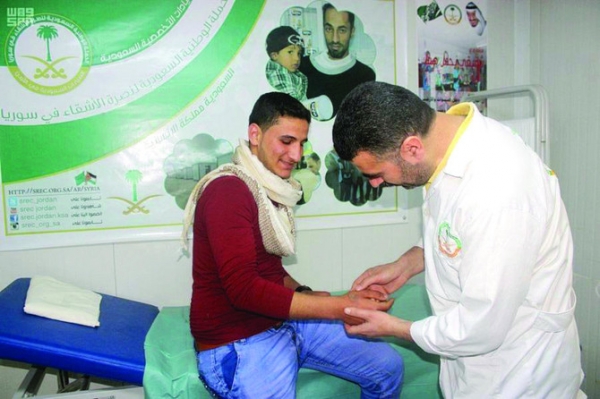A research by Action on Armed Violence (AOAV) has revealed that blasts from explosive weapons have long-lasting psychological effects on victims. The research which examined the mental effects of exposure to explosive weapon harm focused on the victims of armed conflicts in Ukraine and Syria. It found that those exposed to blasts from explosive weapons could suffer from depression on a long-term and that this could also have lasting effects on generations, including children of survivors. The report found that 40% of civilians in conflict-affected areas of Ukraine experienced trauma because of explosive weapons resulting in stress, depression, anxiety, and post-traumatic stress disorder (PTSD). Although there has been a gradual improvement in the situation in Ukraine, the research found that the continued blasts from shelling, landmines, and Improvised Explosive Devices (IEDs) means that there is continued need for health assistance for victims suffering from psychological health problems. This assistance has however not been available due to lack of personnel with expertise in mental health issues. Efforts to assist victims using the available facilities has been hampered by limited resources.
In Syria, the research found a high prevalence of mental health concerns among the displaced and refugees. For instance, a report by the German Federal Chamber of Psychotherapists revealed that around 50% of Syrian refugees living in Germany had mental health problems. This finding was corroborated by the International Medical Corps (IMC) which found that over 50% of the Internally Displaced Peoples (IDPs) and refugees in its facilities had emotional disorders while over 25% of children had intellectual and developmental issues. Explosive weapons were found to be one of the significant contributors to psychological health problems. The AOAV concluded that the noise from blasts and witnessing the impact of such blasts are significant psychological stressors. The research further found that the psychological effects of explosive weapons were higher in people injured by the explosives, with 80% of people expressing signs of high psychological distress. Further, 66% of the injured were left unable to carry out essential daily activities due to their feelings of fear, anger, fatigue, disinterest, and hopelessness. The report further found that while few mental health facilities existed before the war, these were no longer existent as they had been targeted during attacks.
The research also revealed that blasts from explosive weapons have indirect effects on victims. While some victims had identified talking with friends or going for a walk as positive coping mechanisms to deal with anxiety and depression, 16.7% which is mostly made up of men identified alcohol and smoking as a coping mechanism. Women turned to religion and self-prescribe medication. Further, there had been an increase in suicide among men. The challenges for IDPs suffering from mental health problems were further compounded by physical health challenges such as mobility difficulties, blindness/poor vision and hearing loss. These challenges acted as barriers to those seeking support. According to the report, the mental health problems could be alleviated through making the living conditions for IDPs affordable, providing low-cost, accessible mental health support, increasing awareness around mental health, and creating IDPs support groups and activities.
With regard to the Syrians, the mental health issues are mainly a result of the consequences of explosive violence, of the displacement, the living conditions associated with being a refugee, and the trauma of the impact itself. The research discovered several challenges which inhibited efforts to assist the victims: refugees would still be in survival mode, and therefore be unable or not ready to address the trauma they experienced. In Lebanon, where Syrian refugees fled to, the healthcare is expensive and there are few psychiatrists who struggle to meet the needs of Lebanon’s war-affected population. The stigma attached to mental health has also affected efforts to assist the victims. Suicide rates were also found to be high in Syrian refugee camps. The report concluded that explosive violence would have lasting psychological harm in Ukraine and Syria and the longevity of such harm is a result of lack of psychological support and the living conditions of those impacted.
To know more, please read:
Author: Lloyd Chigowe




